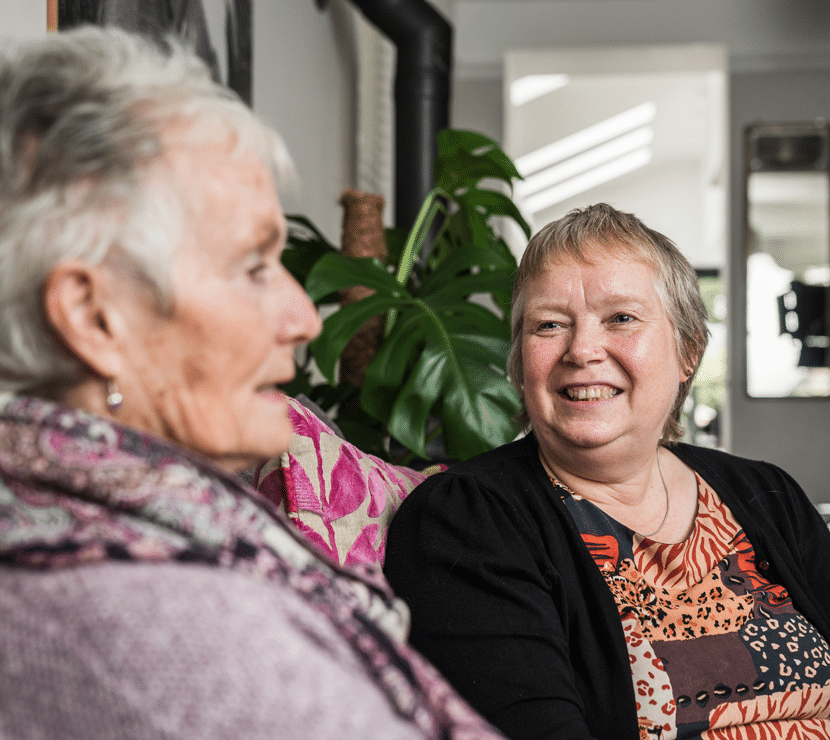Personal alarms (or panic alarms) are an indispensable solution for maintaining the safety and independence of older adults that live at home alone. These compact and wearable devices allow you to contact emergency assistance at the touch of a button. This can be life-saving for the elderly with mobility or frailty concerns that are at risk for falls.
Choosing the right personal alarm is an important decision that shouldn’t be taken lightly. It’s important to diligently research any personal alarm before purchasing to make sure it can meet the needs of you and your loved ones. You may also want to discuss your options with a doctor or licensed physical therapist.
How do panic alarms work?
Panic alarms, usually worn around the neck or wrist, are designed to address the safety concerns of older adults or people with disabilities within their homes. When an emergency arises, such as a slip, fall, or illness, the wearer can simply press the alarm button.
The majority of these alarms are linked to a 24/7 emergency response centre, which communicates with the user through the built-in loudspeaker to ensure their well-being. If necessary, the response team can contact emergency services or family members and remain on the line until help arrives.
Types of panic alarms
- Basic alarms: Simple alarms that emit a loud sound at the push of a button to alert people nearby that there is an emergency
- Pendant alarm: These wearable devices are connected to a 24/7 emergency response centre. In an emergency situation, the user can contact and speak with the response team by pushing a button.
- Fall detectors: These devices have built-in motions sensors designed to detect falls.
- GPS tracking alarm: Wearable devices that are designed to help family members and carers keep track of someone’s whereabouts, especially people living with dementia that may wander.
Tips for choosing the best personal alarm for the elderly
- Identify the needs of the individual
You should always start by considering the needs of your loved one and what type of personal alarm can help you meet your goals. Are you or your loved one in need of a portable wearable alarm that can be worn out and about or a stationary one that remains at home? Do you need an alarm with GPS tracking or one that simply notifies emergency services or family members?
Take the time to research the different options available to you and consider the pros and cons of each type of alarm. It can be helpful to think of your needs and create a list of features you would like your personal alarm to have.
- Consider the battery life and range
For wearable alarms, it’s important to evaluate the range and battery life of the device and whether it suits your goals. You may want to test the alarm to ensure it’s range adequately covers all areas of your home and that the battery life aligns with your requirements.
If you need a wearable alarm for outdoor use, opt for devices with rechargeable batteries or easily replaceable ones. This ensures the device never runs out when it’s needed the most.
- Prioritise easy-to-use features
Some elderly people may find devices that are too technologically advanced or with too many complicated features confusing. Look for devices that are easily operated with simple features such as large buttons or simple touch screens, as these are particularly suitable for elderly individuals. Additionally, consider alarms featuring practical elements like automatic fall detection or voice-activated assistance.
- Factor in costs and ongoing fees
Personal alarm costs can vary widely, spanning from budget-friendly pendant alarms to higher-priced models with many advanced features. When deciding on an alarm for yourself or a family member, take your budget into account and establish a spending limit.
Be aware that some panic alarms might entail ongoing monthly fees for monitoring or other services. Make sure to understand the complete cost of the device or subscription prior to making a purchase.
- Look for user reviews
Before making your purchase consider reading user reviews and asking for recommendations from friends, family, or healthcare professionals. Look for reviews that mention both the benefits and drawbacks of any device so that you can consider the whole picture before purchasing. Avoid products with no little to no reviews or customer feedback.
Elderly care from the home care specialists
By embracing the safety and security offered by personal alarms, you can help your loved ones relish the freedom of living safely and independently in their own homes.
Oxford Aunts has provided high-quality care services in Oxfordshire and beyond for over 50 years. Our live-in care service is focused on keeping people healthy and happy in their own homes, whilst enhancing their quality of life.
Call our friendly and approachable team today to see how we can help you and your family.





